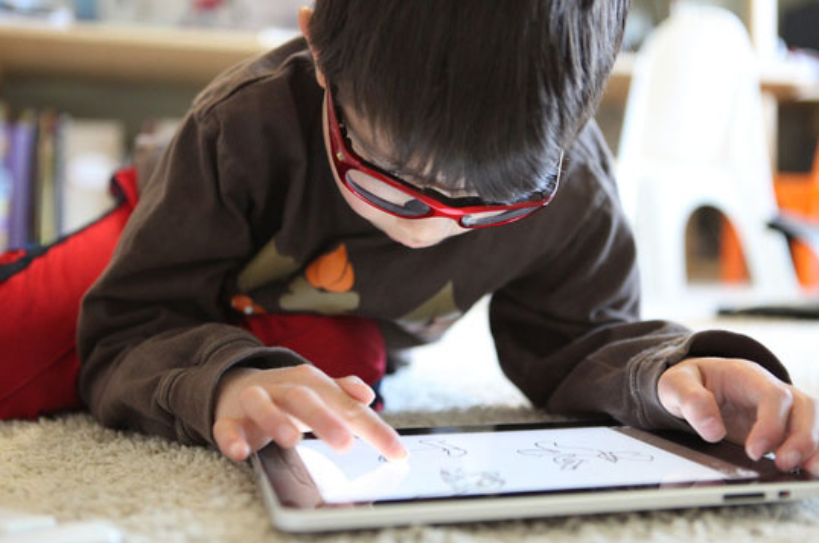
October 29, 2022
Fourteen years ago the American Academy of Pediatrics issued a policy statement addressing children’s screen time that created a media hubbub. The statement was weak and ineffective. The ruckus was in grand disproportion to the Academy’s ho-hum recommendation that parents “avoid television for children under the age of two years.” It generated no positive results. Screen time for all children continues to increase. Parents still consider the television a member of the family. Mobile apps are every parent’s new best friend.
Parents now assume screen time is an important element in early childhood development. Only 14% of parents remember their pediatricians giving any advice about media use, despite the Academy’s 2011 reassertion of their policy. Pediatricians know parents quit listening to that message more than a decade ago. Our best educators worry about the influence of unregulated technology use on the growth of young minds and wonder at the obvious but under-reported connections between screen time and the deterioration of attention. They know they cannot hold the attention of children raised on two-second sound bites.
Children spend an average of five to seven hours every day in front of a screen. The only activity that occupies more time for children is sleeping. These same young kids are experiencing speech and language delays, and chronic attention problems. Literacy is becoming increasingly hard to achieve, and creativity is rare. Though there is little research to establish connections between so many young children’s failure to thrive and their over-exposure to technologies, the conclusion that screen time is corroding young minds seems ridiculously obvious to most teachers.
The AAP’s most recent research indicates that a shocking 90% of children younger than two watches some form of electronic media. By age three, one-third of these kids have televisions in their bedrooms. Modern parents consider one of the most unpredictably dangerous influences on the lives of young children to be a peacekeeper, a “safe” activity for their children.

Well-educated, upwardly mobile parents fancy educational technology for kids. Lower-income families use the television as a babysitter. The New York Times calls this the “app gap.” The Times points out that both sets of parents are thumbing their noses at the AAP, relying on screens to occupy their children.
The Mayo Clinic’s available information for parents acknowledges a lack of definitive research but links too much screen time to behavioral problems, irregular sleep, poor academic performance, and, most convincingly, obesity. Most major public health organizations have described obesity in epidemic terms. Screen time is obviously not the only cause of obesity, but experts consider it a primary gateway to things like soda pop, sedentary lifestyles, and high-fat snack foods.
The effects of screen time on the health of families are easy to visualize. They are American images: An overweight family gathered around the television, eating separate, high-fat meals, sharing two-liter bottles of soda. Young children eating finger foods in their car seats, mesmerized by the screens attached to their parents’ headrests. Bug-eyed youngsters pass time on iPads and cell phones loaded with mobile apps.
The AAP, the National Institute of Health, and the Mayo Clinic urge parents to limit and plan screen time and strongly discourage allowing children to eat in front of a screen. Do not allow children to have televisions or computers in their bedrooms, they say. Do not leave the television on throughout the day. Make choices. Plan outdoor activities. Turn the television off for a day. Though teachers know parents are not following the AAP guidelines, they know less screen time for longer would build a healthier child.
A paltry 10% of parents follow the AAP guidelines. There are apps available for kids so young they are more inclined to chew their cell phones. Fishing poles and family meals are Norman Rockwell, retro visions of a time that may be forever gone. The thought of commuting or eating or falling asleep without a screen makes most parents shudder.
Teachers do not have spare time and money to sponsor research. Studies into the effects of screen time on children will probably always be poorly funded and inherently limited in scope and value. Even the best studies cannot compare a mature adult with the person she might have become, had she enjoyed a different upbringing. When a child is diagnosed with hyperactivity or an attention deficit, parents can get a prescription with relative ease. But they cannot get a do-over. When an adolescent commits an act of violence, it’s too late to turn off the video games.
Good parenting has never been easy. Bad parenting has never been easier. Screen time seems like a safe, peaceful, educational way for parents to entertain their children. Teachers of every age group know we will have to change our approaches to remain relevant and keep kids engaged in learning. Good teachers of the world will continue to dream of every child reaching his or her potential. Good parents of the world will dream too, resisting, adjusting, and adapting to protect our children from the influences most of the world has accepted without question.